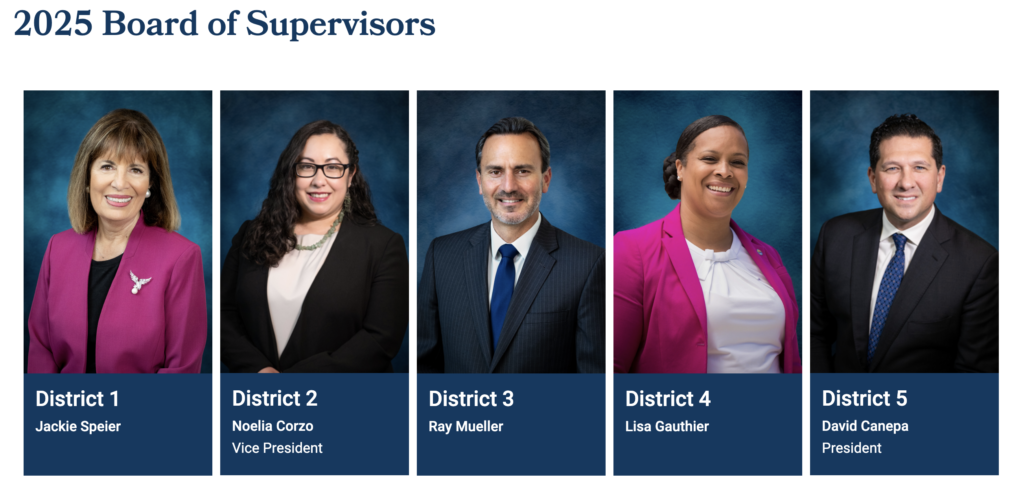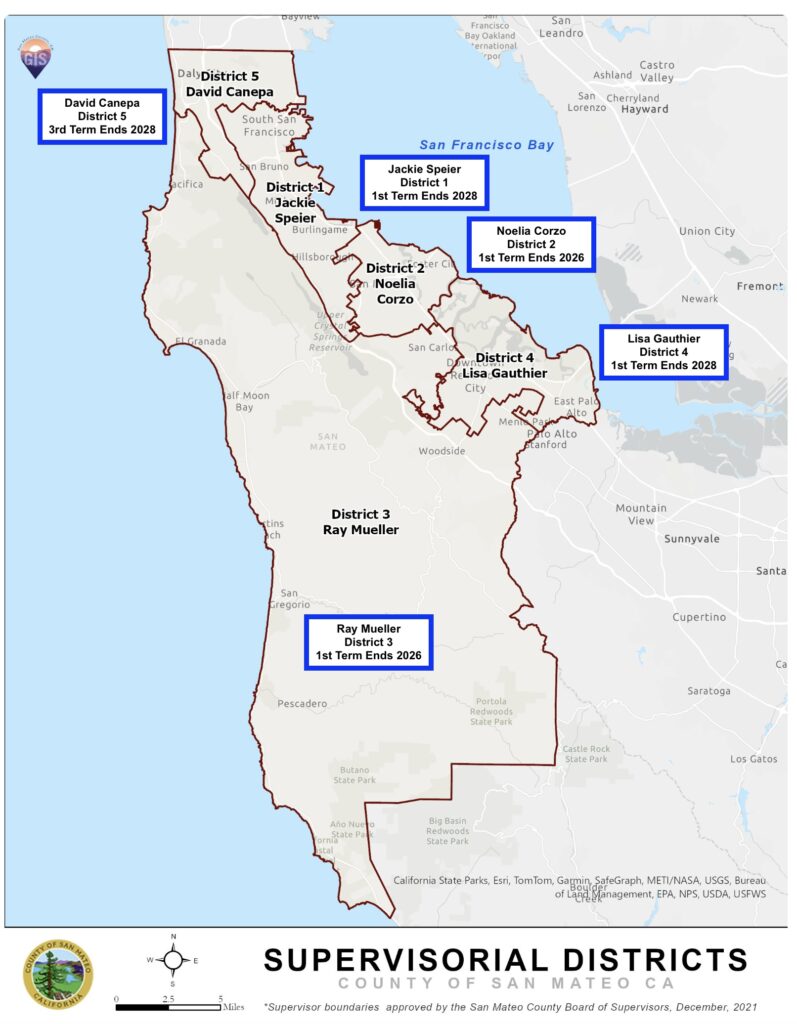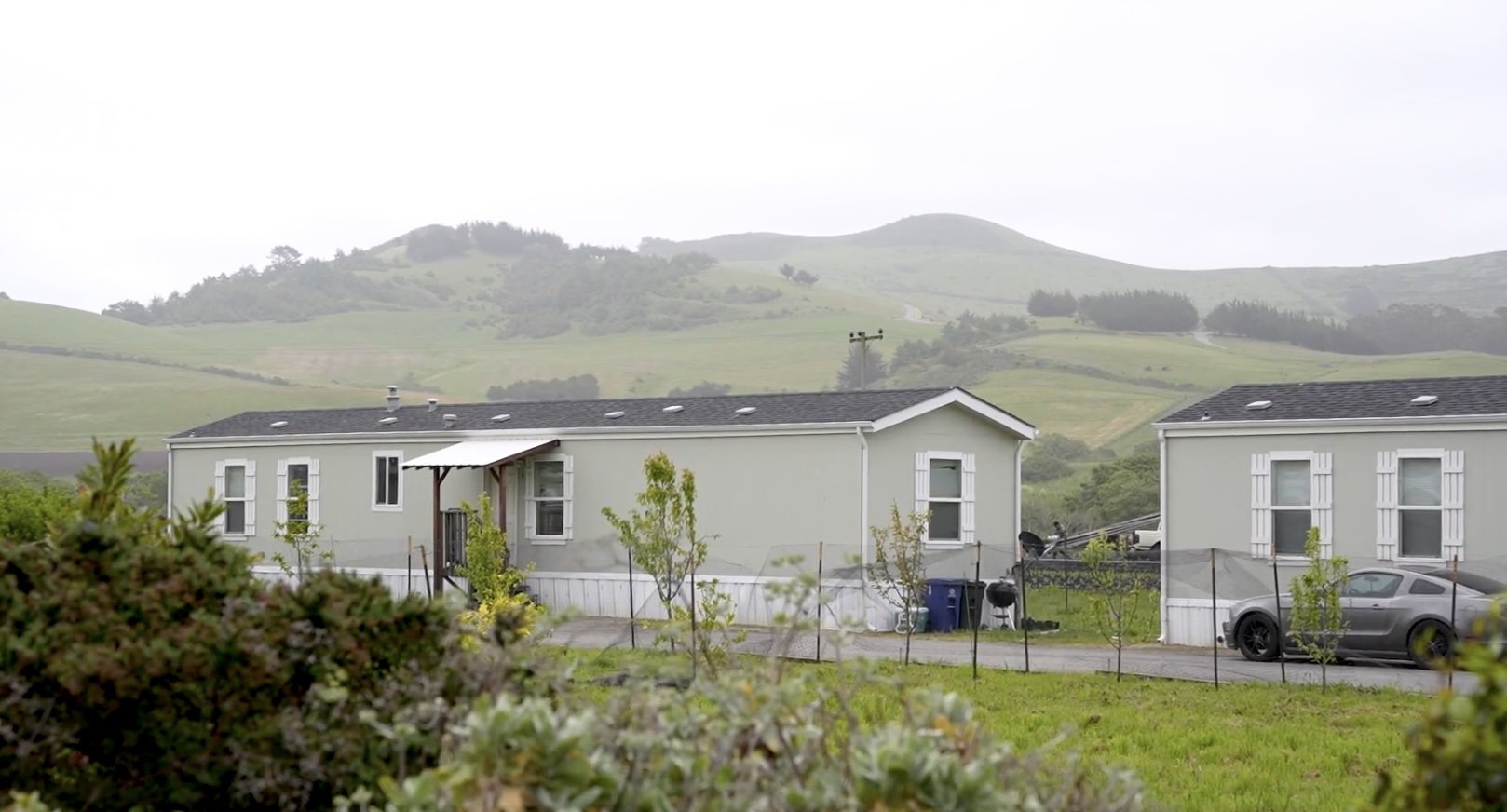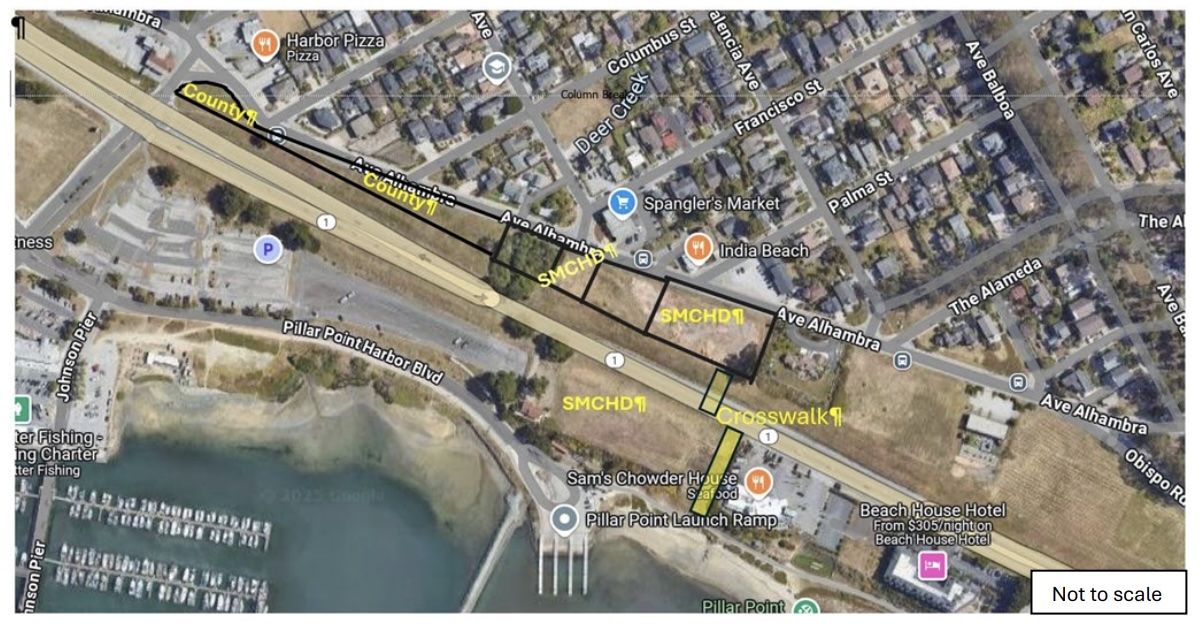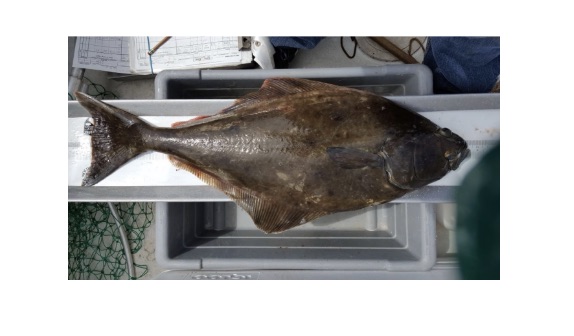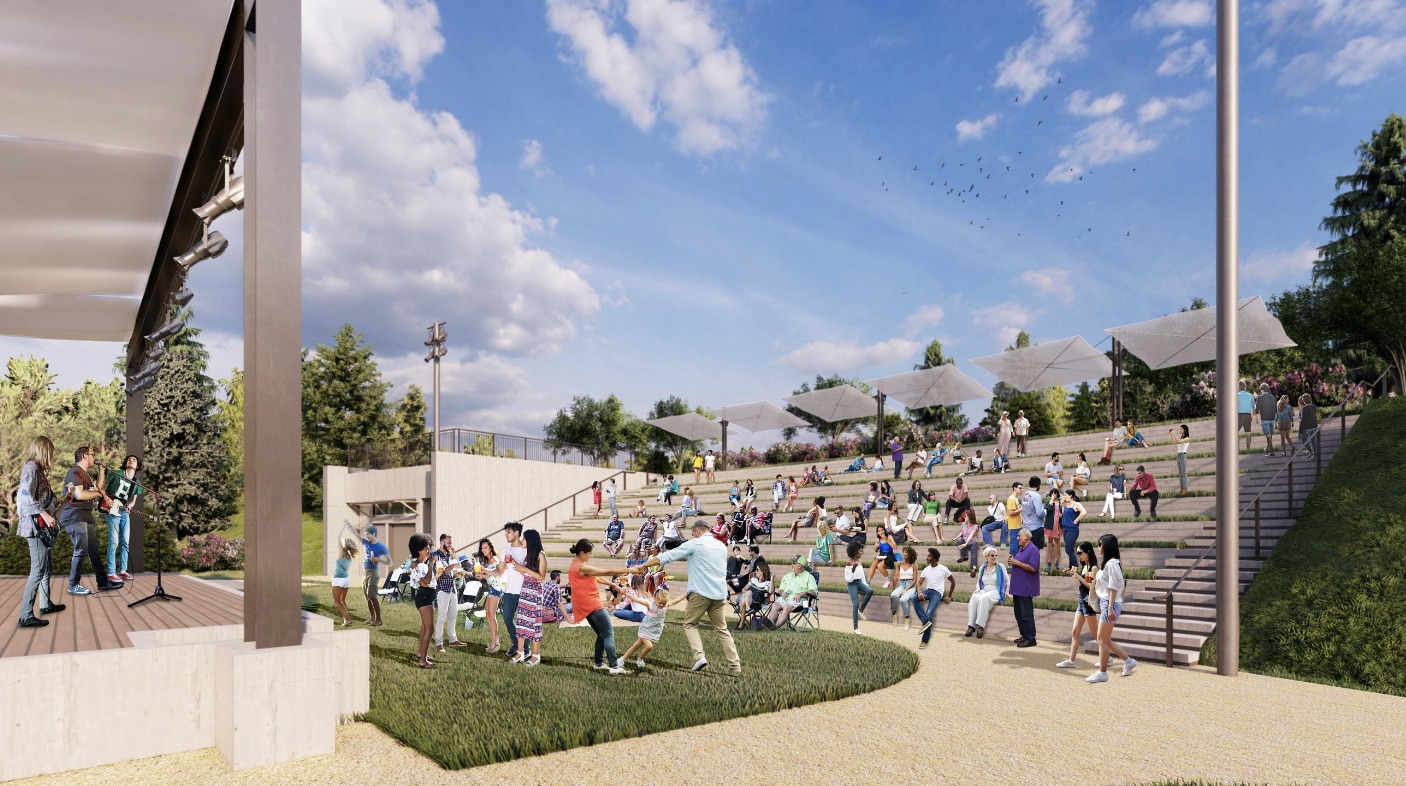|
Getting your Trinity Audio player ready...
|
PRESS RELEASE and VIDEO. From the San Mateo County Executive’s Office on May 8th, 2025.
Video from the San Mateo County Board of Supervisor’s meeting on Tuesday, May 6th, 2025 at 9:00am as a hybrid meeting. Agenda. Item #9: Staff Report and attachments.
Click for VIDEO
Starts at at 3:03:55
Staff Report
Many of the farmworkers in San Mateo County qualify as very low-income and struggle to find safe and affordable housing, adequate food, health care, and reliable transportation.
In 2014, the County created the Farm Labor Housing Pilot Program (later renamed the “Farm Labor Housing Loan Program” or the “Program”), designed to address the need for affordable agricultural workforce housing. The Program invested nearly $3,000,000 to provide forgivable loans to repair or replace existing agricultural workforce housing for very low-income farmworkers. In the ensuing years, the Program was expanded and revised to also include loans for the construction of new housing and other changes based on feedback from the community, stakeholders, and the Board. As of 2024, the Program had funded the rehabilitation and construction of 16 farmworker housing units.
In the spring of 2023, the County created the Farmworker Housing Compliance Task Force to identify and inspect all farmworker housing units on agricultural lands in the unincorporated area to ensure that they met essential health and safety standards. Approximately two-thirds of inspected units met such standards, while one-third required some form of corrective work. Even when units met these minimal standards, however, the Task Force noted the potential among many units for further improvements and repairs to better protect health and safety, including by replacing illegal units or making necessary renovations to bring units into full legal compliance with all applicable code provisions.
In light of the ongoing challenges to the availability and maintenance of safe and affordable housing for agricultural workers in San Mateo County, and at the request of the Third Supervisorial District Supervisor, Ray Mueller, Department of Housing staff have reviewed and revised the terms of the Program and hereby recommend re-launching the Program with a loan fund of $2,000,000.
DISCUSSION
The recommended allocation of $2,000,000 in Measure K funding for the Program will support a phased implementation of the Program to enhance and ensure the preservation of current affordable housing stock in the County before investing in new housing units. The allocation will be provided to the Department of Housing (“DOH”) via an Appropriation Transfer Request (“ATR”) presented to this Board with this memorandum.
Phase l, covering the first 12 months of the Program, will focus on rehabilitation/renovation projects, the replacement of existing dilapidated units and projects to legalize and improve, as necessary to achieve compliance with current code requirements, existing unpermitted units/structures, waste disposal systems, and/or potable water systems, with a maximum loan amount of $100,000 for each rehabilitated Project Unit.
Should funding remain after Phase l, Phase II of the Program will support both the preservation and creation of farm labor housing units, with loan amounts for new units not to exceed $250,000 per unit for the first two Project Units and up to $200,000 for each additional Project Unit. All loans under the Program will be interest-free and will consist of one of the following three repayment structure options:
• Model A requires equal-payments over the 30-year loan term. If the borrower provides a rental subsidy and charges a qualifying household below the maximum allowable rent, the total difference between the maximum allowable rent and the rent charged would then be credited towards the required repayment amount.
• Model B requires a balloon payment of the total loan principal amount at the end of the 30-year loan term. The borrower would have the option to provide interim payments to reduce the final balance of the loan. If the borrower provides a rental subsidy and charges a qualifying household below the maximum allowable rent, the total difference between the maximum allowable rent and the rent charged would then be credited towards the outstanding principal loan amount.
• Model C consists of forgiving the full loan principal amounts in equal increments of 20% of the total loan principal amount over the final 5 years of the 30-year term.
Implementation of the Program will be facilitated by DOH in partnership with the County Department of Agriculture/Weights and Measures, Department of Planning and Building, Environmental Health, and CalFire. Staff have prepared updated Program guidelines to share with the public (attached for reference).
Information about the Program will be sent to all operators of farmworker housing that have been identified by the County’s Farmworker Housing Compliance Task Force. Additionally, DOH will present information about the Program opportunity to the Agricultural Advisory Committee. The Program Guidelines will also be published on the County’s website.
In order to facilitate implementation of the renewed Program, staff recommends that the Board authorize the Director of the Department of Housing, or designee(s), acting in consultation with the County Attorney, to negotiate and execute all agreements, documents, certificates and amendments necessary and advisable to effectuate loans to eligible Program participants within the scope of funding and Program guidelines authorized pursuant to this resolution.
The County Attorney’s Office has reviewed and approved the Program guidelines and resolution as to form.
The Controller and the County Executive have approved the ATR accompanying this memorandum.
COMMUNITY IMPACT
This Program will positively impact very low-income farm laborers and their families by meeting their vital need of safe, decent and affordable housing. Staff have engaged farm laborers and their families, farm operators and farm owners on the design of this Program through multiple community listening sessions and feedback from pilot test participants.
FISCAL IMPACT
Approval of the renewed funding of $2,000,000 in Measure K fund reserves shall be used for the implementation of the Farm Labor Housing Loan Program by the Department of Housing. This amount is included in the County’s Measure K Reserves in the Adopted Budget for FY 2024-25.
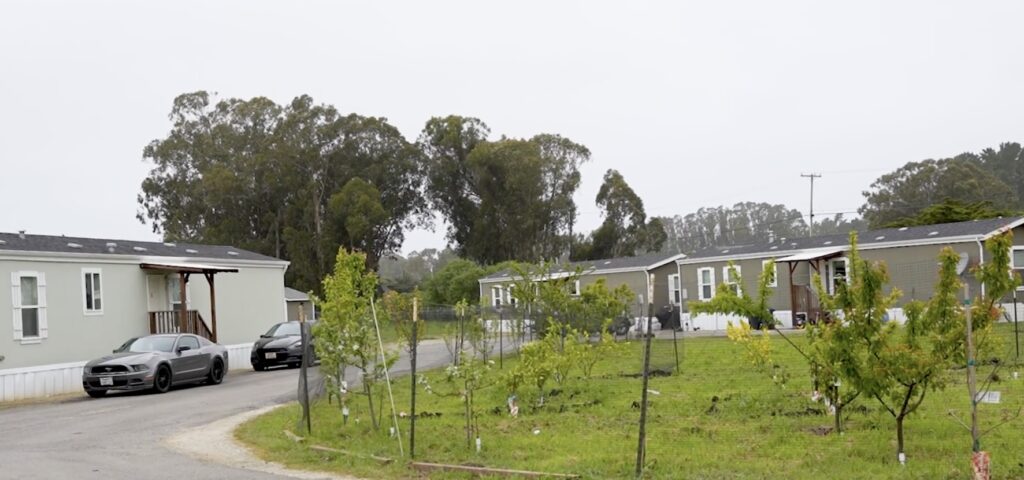
Press Release – San Mateo County supervisors on Tuesday agreed to seed a fund that will provide loans to local farmers who provide low-cost housing to their workforce.
At a hearing in Redwood City, supervisors voted 5-0 to allocate $2 million to help address a critical shortage of affordable housing for the region’s farm laborers.
The funds are intended to help qualifying farm owners and operators rehabilitate existing units to ensure that they meet essential health and safety standards as well as build new housing.
“Our agricultural industry is the backbone of our food system, and it’s struggling here in San Mateo County. We’re taking action to support them,” said Supervisor Ray Mueller, whose District 3 includes the majority of the county’s farmland.
“By working to ensure agriculture has the financial resources available to provide safe housing for farmworkers and ranch hands, we’re strengthening our agricultural economy and building a stronger, more resilient future for every member of our community,” Mueller said.
To qualify for loans, farm owners or operators must meet certain requirements that include bringing units up to health and safety codes, renting solely to eligible low-income farmworkers and their families and maintaining below-market rents.
Information about the program will be sent to all operators of farmworker housing identified through prior outreach.
San Mateo County’s agricultural industry generates about $100 million in gross value annually.
Supervisors approved a two-phased implementation. Phase I will focus on enhancing the quality of existing housing stock through rehabilitation and renovation of housing units. Phase II will then focus on the construction of new housing units, pending unallocated funding from Phase I.
An additional component of this Board approval includes a credit against the loan balance for San Mateo County farmers that would allow them to repay the loan in an expedited format in return for leasing the units at rates even lower than the program requires.
The Board’s approval renews ongoing efforts to improving housing conditions on farms across San Mateo County. Supervisors previously allocated $3 million that as of 2024 funded the construction and rehabilitation of 16 housing units.
The funding approved Tuesday comes from the countywide, voter-approved Measure K half-cent sales tax, which provides local funds for local needs.
